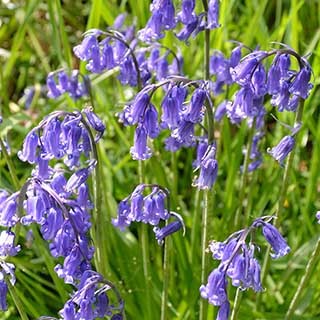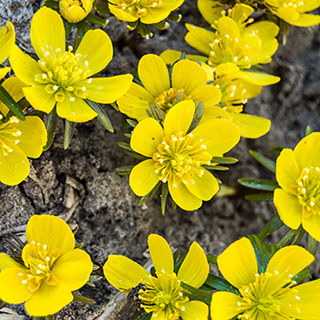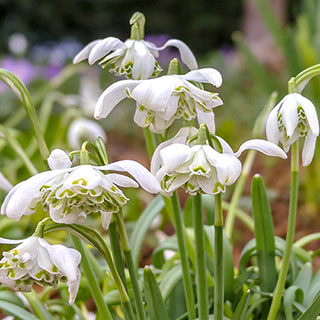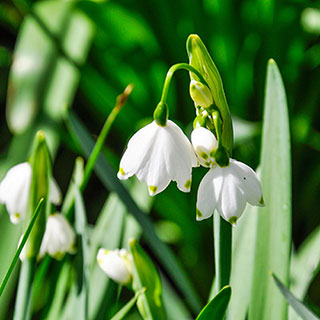Snowdrops & Bluebells
OFF

OFF



OFF

OFF


OFF



Many people love the sight of Spring bulbs coming up at the end of the winter. They really enjoy walking through the countryside and spotting the snowdrops which mark the beginning of Spring in the eyes of most people, despite the fact that there is often snow after these bulbs are showing. They will try to spot the Bluebells in the woods or rejoice over seeing the energetic yellow of aconites. Therefore it is great to know that there are a variety of native British bulbs available to plant in your own gardens, so you can spot if the winter is over simply by looking out of the window.
These early flowering bulbs can give a beautiful display of colour and are particularly effective if planted in a large group close together and away from large plants that might overshadow them. They will often flower for several years, and each time they should spread over a larger area of the garden.
Bulbs tend to like a shady spot as they naturally grow in woodland. Therefore they can make a lovely display of colour in what otherwise could have been a bare patch of the garden where nothing else might grow. They also work well in the lawn. They are easy to plant, just make sure they aren't too deep as they can rot. If they are too high the roots can get exposed and cause the plant to die. When you water the plants in don't use a hose or put on too much water as they can get waterlogged. The soil around them only needs to be moist. So simply dig a hole of the right depth and place a bulb in the hole. Replace the soil and firm down with your hands and gently water in.
The best time to plant these bulbs are when they have stopped flowering, but before the leaves have died back. This is called planting in the green ie when they bulb still has green leaves on it. Therefore you should plant them out in the Spring rather than Autumn like you might have expected. Planting aconites in the green, snows in the green and bluebell in the green will ensure a better flower production.
YouGarden provide native British bulbs which aren't taken from woodlands but provided to us by a bulb producer who grows them in sustainable forests. They are proper English varieties, not foreign ones, which is reassuring as Spanish bluebells can take over your garden.

